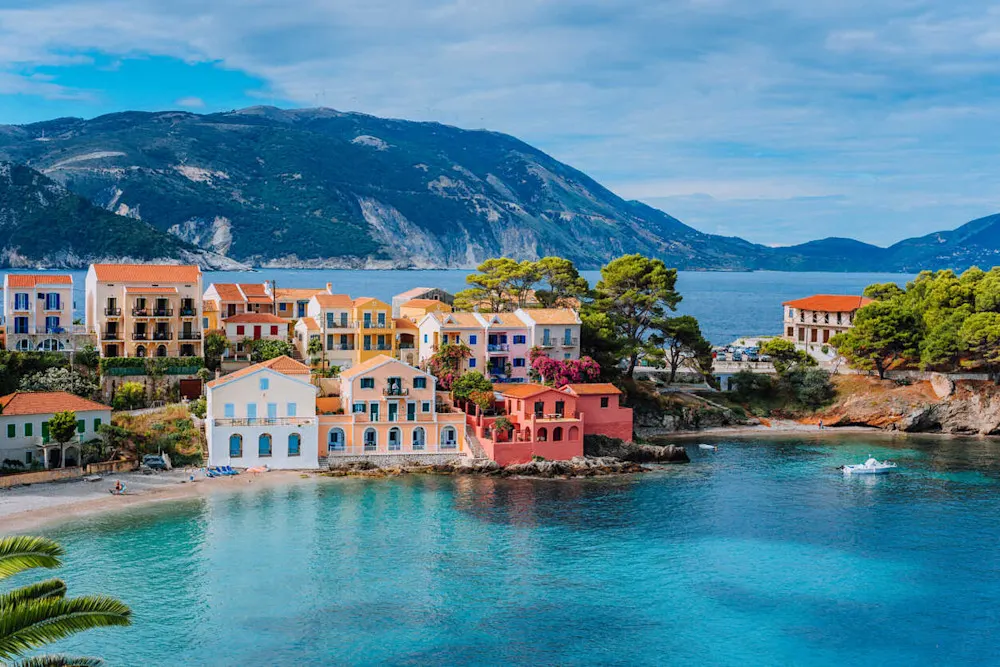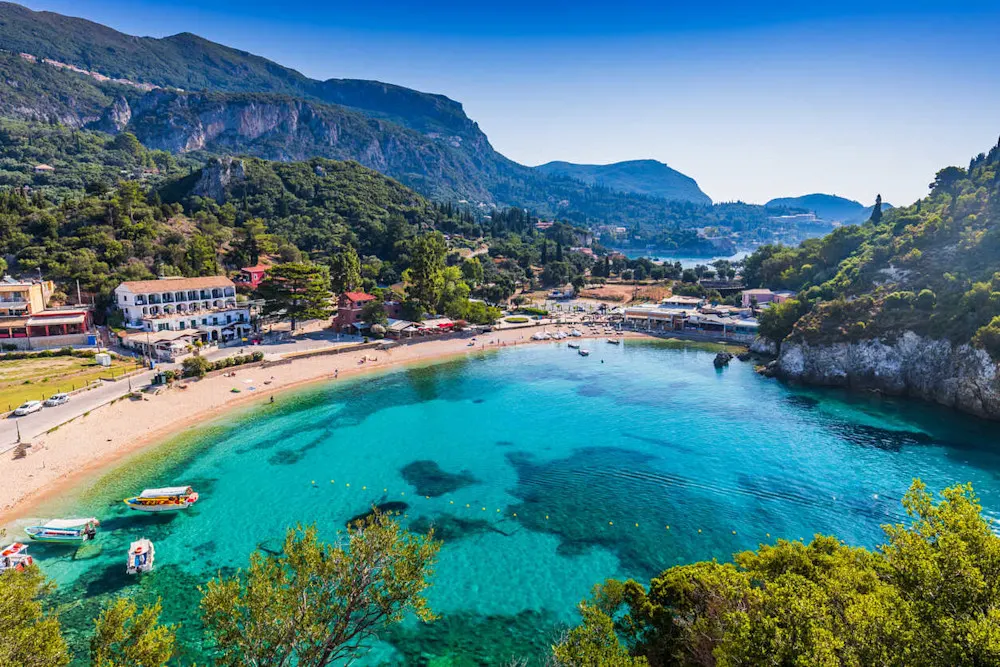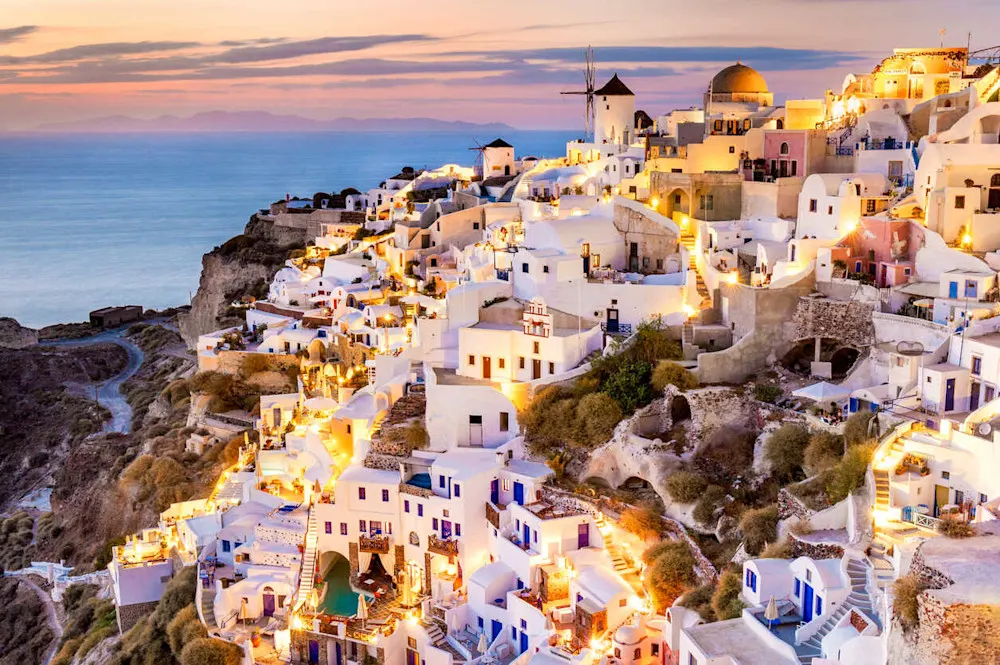Portugal and Greece have much in common.
They’re both Mediterranean countries with a deep connection to the sea. They enjoy temperate climates. The cost of living is low, and the quality of life high. They’re both in the European Union and offer a pathway to citizenship.
But there’s one thing Greece offers that Portugal no longer does: a Golden Visa through investment in residential property.
Golden visas are residency permits based on investment. They’re typically valid for five years. They’re renewable or qualify you for permanent residency if you prefer. They don’t require presence in the country for most of the year, so you don’t trigger tax residency.
Portugal got the Golden Visa ball rolling in Europe in 2012. It quickly became popular… so much so that seven years later the government cancelled the residential property option. That lovely country was running out of space and properties and struggled to accommodate its own citizens. (Portugal still offers other kinds of Golden Visas—such as investing in a fund.)
Get Your Free Greece Report Today!
Get Your Free Greece Report Today!
Learn more about a slower pace of life in Greece and other countries in our free daily postcard e-letter. Simply enter your email address below and we'll also send you a FREE REPORT — Retire in Greece—Find Your Dream Retirement in This European Archipelago.

By submitting your email address, you will receive a free subscription to IL Postcards and special offers from International Living and our affiliates. You can unsubscribe at any time, and we encourage you to read more about our Privacy Policy.
Greece, on the other hand, still offers a Golden Visa via property purchase. The country has also struggled with housing issues in its domestic politics. But rather than abandon the policy altogether, it’s made some clever tweaks… increasing the minimum investment level in certain areas (it was originally $270K everywhere)… tweaks that take advantage of another thing Greece has that Portugal doesn’t.
Portugal has approximately 1,700 miles of coastline. The ratio of coastline to total land area is 5:9. By contrast, Greece has 9,412 miles of coastline. The ratio of coastline to land area is 37:8.
Because it’s a nation of islands and heavily indented peninsulas, Greece has far more capacity to accommodate foreign investors who want to buy or build properties near the sea.
That’s why Greece has now taken over Portugal’s former role as the hottest Golden Visa offering in Europe.
The Easiest Golden Visa on The Planet

Here’s how the Greek Golden Visa program works in 2025:
For Athens, Thessaloniki, Mykonos, Santorini, and 32 islands with populations above 10,000, the minimum real estate investment is €800,000 (about $865,000 currently).
For all other areas, you must invest at least €400,000 ($432,000) in a residential property. This includes most of the Greek islands.
You can invest €250,000 ($270,000) to convert commercial properties to residential use or restore a historic listed building.
In every case, the investment must be a single dwelling of at least 120 sq. meters (1,290 sq. feet).
The Greeks have been clever here. A few years ago, foreign buyers targeted inner city neighborhoods, scooping up multiple properties and converting them into Airbnbs—or even left them empty to reap the rise in property values. This was understandably unpopular with Greeks… especially young folks in search of good, affordable housing.
But instead of canceling the program, the Greek government set a minimum investment price that pushed foreign buyers towards neighborhoods that were already expensive. Whereas previously an investor could spread their money across multiple properties, now they could only buy one to qualify.
These changes relieve the political pressure on the government to prevent unsustainable housing prices. That makes it likely that the Greek program will survive, unlike the Portuguese program.
Another point in Greece’s favor is that they’ve made the application process fully digital. Everything can be done online, from abroad. Applicants can now assign power of attorney to a Greek local, allowing them to apply for a tax number, open a Greek bank account, buy property and do other transactions via proxy before they arrive in the country.
This is much easier than the Portuguese visa application system, which is still primarily manual.
The Greek program also allows families to pool their money to invest in properties. Many residency programs around the world demand extensive due diligence on every single individual contributing money to an application. In Greece, all of this can be conducted by a bank, rather than the government.
Finally, Greece has no problem allowing individuals to borrow from foreign banks to fund their investment. From the Greek perspective, it’s still foreign money coming in. In other words, Greece is interested in the cash flow, not in high-net-worth individuals per se. This makes it a particularly attractive program for ordinary folks.
The Cheapest Option

Since it’s the cheapest route to a residential Golden Visa, many people are interested in the option to convert a commercial property to residential use or renovate an old home. These €250,000 investment options are available throughout Greece.
Before you pull out your checkbook, it’s important to remember that buying a property for €250,000 is just the beginning, unless that property has already been converted or renovated. Here are some scenarios:
Commercial conversions must be completed before submitting your Golden Visa application. Most properties in this category are renovated by developers. For example, a developer might buy an old commercial building and convert it into apartments. The final sale price for the apartment might be around €250,000 but could be higher. It depends on the cost of the conversion and the location.
Restoration of Listed Buildings must be completed by the end of the initial five-year visa period to be eligible for renewal. Using this route, it’s possible to buy a property for any price, as long as it’s completely converted into a habitable residential property within five years. The final cost, therefore, depends on the initial purchase price and the cost of the renovations.
In my experience, Greek property developers have been smart about this process. Some have renovated old office buildings into modern apartments.
In other cases, property agencies anticipating changes to the government rules started scouting for potentially eligible properties even before the regulations changed. In some cases these properties only need minor repairs or upgrades. In others, they are unfinished properties that need to be completed before habitation.
Get Your Free Greece Report Today!
Get Your Free Greece Report Today!
Learn more about a slower pace of life in Greece and other countries in our free daily postcard e-letter. Simply enter your email address below and we'll also send you a FREE REPORT — Retire in Greece—Find Your Dream Retirement in This European Archipelago.

By submitting your email address, you will receive a free subscription to IL Postcards and special offers from International Living and our affiliates. You can unsubscribe at any time, and we encourage you to read more about our Privacy Policy.
Other Routes to a Greek Golden Visa

Residential property isn’t the only way to get a Golden Visa in Greece. Here are other routes:
$864,000 Investment in shares or corporate bonds listed on regulated markets in Greece.
$540,000 Investment in a public limited real estate investment company (Greek term for a REIT) that invests exclusively in Greece, or in a closed-end or mutual fund focusing on Greek assets.
$540,000 Investment in Greek government bonds with a maturity of at least three years through a Greek credit institution.
$540,000 Deposit for a fixed term with a Greek credit institution.
$378,000 Investment in a mutual fund or alternative investment fund focused on Greek shares, corporate bonds, or government bonds.
Greece’s economy is doing well right now—with Gross Domestic Product (GDP) growth in recent years more than triple the Eurozone average. And so you could expect higher returns on your investments than elsewhere in Europe.
One thing to remember, however, is that if you’re a US taxpayer, investing in foreign mutual funds is a no-no. Under pressure from Wall Street, the US Congress has imposed severe tax penalties on people who invest in foreign funds that compete with US offerings. It is possible to make such investments, but it requires some preparatory legal work.
Going Greek
What about the process? Here are some of the additional rules and costs, as well as the procedure:
Program fees: The investors’ permit costs €2,000 and €150 per additional family member.
No minimum residence requirement: That means you don’t trigger Greek tax residency. You can keep your Greek residency rights in your back pocket as a Plan B until you need them.
Citizenship via naturalization can happen after seven years if you meet an annual minimum physical presence and learn passible Greek.
Here’s how the process unfolds:
Choose your investment.
Obtain a Greek Tax Number (AFM) and open a Greek bank account.
Sign a Power of Attorney (PoA), which can be done remotely, to allow a lawyer to handle the process.
Make the investment.
Prepare required documents, including passport, biometric photos, proof of funds, clean criminal record, etc.
Submit your application through the Aliens and Immigration Department in Greece.
Attend a biometrics appointment either during a visit to Greece or at a consulate after pre-approval.
Receive your residency permit.
All in all, when it comes to Golden Visa options, I’d say Greece is more than the new Portugal… it may be even better.
Get Your Free Greece Report Today!
Get Your Free Greece Report Today!
Learn more about a slower pace of life in Greece and other countries in our free daily postcard e-letter. Simply enter your email address below and we'll also send you a FREE REPORT — Retire in Greece—Find Your Dream Retirement in This European Archipelago.

By submitting your email address, you will receive a free subscription to IL Postcards and special offers from International Living and our affiliates. You can unsubscribe at any time, and we encourage you to read more about our Privacy Policy.
Consult with Me, One-on-One
My Mission: To Make Your Life Simpler, Safer, and Freer … Not More Complicated
Stop overcomplicating, second-guessing, or giving in to “information paralysis” … Let’s sit down together (online), and I’ll help you create a custom blueprint for your international goals… second passports, tax, travel, retirement, estate, business, and more…
